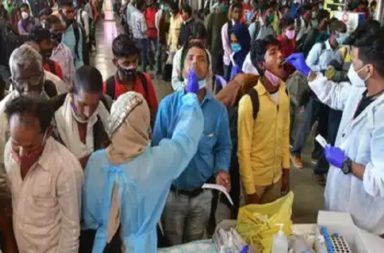The UK government has accepted the recommendation from the Medicines and Healthcare Regulatory Agency (MHRA) to authorise Oxford University-AstraZeneca’s Covid-19 vaccine, named Covishield, for emergency use. The shot is expected to be rolled out next week and would be added to the Pfizer-BioNTech vaccine which has so far been given to 600,000 people in the U.K., according to government statistics.
The Oxford-AstraZeneca COVID vaccine, however, can be stored at refrigerator temperatures, unlike the Pfizer-BioNTech vaccine, where storage conditions need to be at at least -70 degrees. Instead of administering the two shots within a month, clinicians will wait as long as 12 weeks to give people their second doses, the government said, a decision that applies to the Oxford-AstraZeneca vaccine as well as the Pfizer-BioNTech shot that Britain authorized early this month. This also poses a great hurdle for low and middle-income countries in the distribution of the vaccine. The UK nod will strengthen the case for quick approval of the Serum Institute of India’s emergency use authorisation application. SII is a partner of the Oxford University-AstraZeneca and is manufacturing the vaccine in India.
The pandemic has already killed 1.7 million people around the world, sown chaos through the global economy and upended normal life for billions since it began in Wuhan, China, a year ago. Britain and South Africa in particular are grappling with new variants of the coronavirus, which the government and scientists say are more contagious; many countries have responded by banning passenger flights and blocking trade. AstraZeneca and other developers have said they are studying the impact of the new variant but expect that their shots will be effective against it.
Beyond the dosing questions, Britain’s health service must also figure out how to persuade people to take a vaccine that appears less effective than other available shots, but that nevertheless could hasten the end of a pandemic that has been killing hundreds of people each day in Britain and thousands more around the world.





